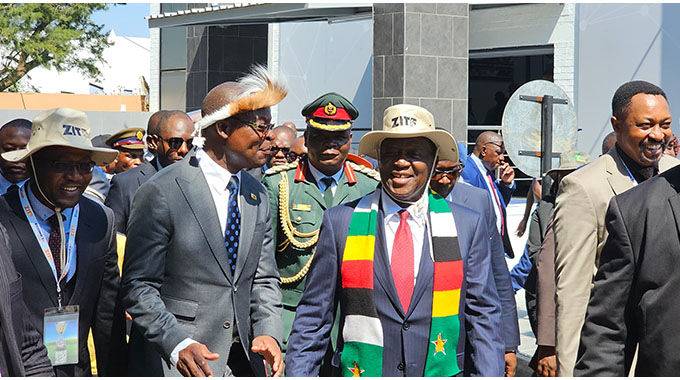GMB acquires moisture testing equipment
across the country.
GMB general manager Mr Albert Mandizha yesterday unveiled the equipment at the Aspindale Depot in Harare.
He said the protometers were portable, easy to use and suitable for use even at grain collection sites.
“These Protometers can be used to measure moisture content of any grain within 10 seconds and they will be used at all our 88 depots across the country.
“They are also suitable for use at grain collection sites as they are small, portable, convenient, easy to use and battery powered. However we’ll have to acquire more as the ones we imported are not enough,” said Mr Mandizha.
He said GMB last bought grain moisture testing equipment five years ago and the latest acquisition was necessitated by the need to establish more grain collection points.
Mr Mandizha said farmers who were contracted to GMB or were willing to sell their grain to the parastatal will get a free service of the Protometers.
Farmers needing a quick service would pay a US$5 fee.
They would be required to bring a kilogramme of the grain to access the essential service.
“Let me take this opportunity to reiterate that we accept grain that has a moisture content of 12,5 percent and below only.
“Anything above that we don’t accept because it would be detrimental to long term storage conditions, which we anticipate to do from this year,” he said.
Last year, farmers delivered 250 000 tonnes of maize to the GMB and that target is expected to be surpassed this year.
Some depots are on 58 percent full.
Mr Mandizha said during the delivery peak around August and September last year, farmers were delivering 20 000 tonnes of maize a week.
He said this year farmers have started delivering more than 11 000 tonnes per week.
The GMB expects to receive more than 50 000 tonnes of maize by November this year.
The grain company has a holding capacity of around 4,5 million tonnes.
GMB is currently offering US$285 per tonne of maize.
“Last year we paid US$84 million dollars to maize farmers, and by the end of this week we’d have paid in excess of US$2 million.
“This goes a long way in showing our commitment in paying farmers, contrary to rumours and allegations that GMB does not pay well for delivered grain, which has been proved wrong as we work hand in hand with the Treasury,” he said.
Mr Mandizha refuted allegations that Zimbabwe would face food shortages, saying 50 000 tonnes had been set aside for vulnerable groups who access the commodity through the Department of Social Welfare.
He said GMB still accepted the exchanging of grain with inputs and hailed the scheme for improving production.
“Agriculture needs meticulous planning as without this yields would definitely go down.”
Mr Mandizha said GMB would remain the buyer of last resort and promised the organisation will continue offering premium prices to farmers.









Comments